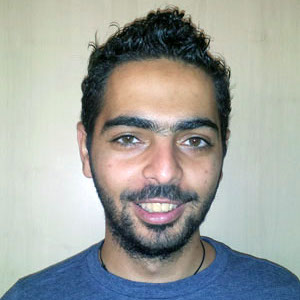CALL FOR PAPERS
Download CFP as PDF
TOPICS OF INTEREST
Topics of interest include, but are not limited to:
* Principles and architecture of autonomic data management systems
* Retro-fitting existing systems vs. designing for self management
* Self-* capabilities in databases and storage systems
* Data management in cloud and multi-tenant databases
* Autonomic capabilities in database-as-a-service platforms
* Automated testing of data management systems
* Automated physical database design and adaptive query tuning
* Automated provisioning and integration
* Automatic enforcement of information quality
* Robust query processing techniques
* Self-managing data stream engines and adaptive event-based systems
* Self-managing distributed / decentralized / peer-to-peer information systems
* Self-management of internet-scale distributed systems
* Self-management for big data infrastructures
* Monitoring and diagnostics in data management systems
* Policy automation and visualization for datacenter administration
* User acceptance and trust of autonomic capabilities
* Evaluation criteria and benchmarks for self-managing systems
* Self-evaluation of data management services in the cloud
* Use cases and war stories on deploying autonomic capabilities
SUBMISSION GUIDELINES
Authors are invited to submit original research contributions in English of up to 6 pages in the IEEE camera-ready format (templates are available at the ICDE 2019 submission guidelines page) to the submission site
https://cmt3.research.microsoft.com/SMDB2019. Authors of accepted papers will be encouraged to submit an extended paper of up to 8 pages for final publication. All accepted papers will appear in the formal Proceedings of the Conference Workshops published by IEEE CS Press, and will be included in the IEEE digital library.
Paper submission deadline:
December 3, 2018 5pm PST December 17, 2018 5pm PST (abstract)
(optional)
December 10, 2018 5pm PST December 22, 2018 5pm PST(full paper)
Notification:
January 28, 2019 January 31, 2019
Camera-ready:
February 22, 2019







 Jingren Zhou is Vice President at Alibaba Group. He is responsible for driving data intelligence infrastructure and several key data-driven businesses at Alibaba. Specifically, he leads work to develop cloud-scale distributed computing platform, data analytic products, and various business solutions. He also leads work to develop advanced techniques for personalized search, product recommendation, and advertisement at Alibaba's e-commerce platforms, including Taobao and Tmall. His research interests include cloud-computing, databases, and large scale machine learning systems. He received his PhD in Computer Science from Columbia University. He is a Fellow of IEEE.
Jingren Zhou is Vice President at Alibaba Group. He is responsible for driving data intelligence infrastructure and several key data-driven businesses at Alibaba. Specifically, he leads work to develop cloud-scale distributed computing platform, data analytic products, and various business solutions. He also leads work to develop advanced techniques for personalized search, product recommendation, and advertisement at Alibaba's e-commerce platforms, including Taobao and Tmall. His research interests include cloud-computing, databases, and large scale machine learning systems. He received his PhD in Computer Science from Columbia University. He is a Fellow of IEEE.
 David Lomet founded the Database Group at Microsoft Research Redmond in 1995 and managed it for 20 years. His research career began at IBM where, while on a 1975-76 sabbatical at the University of Newcastle-on-Tyne, he invented atomic actions (a form of transactions). He later worked at Wang Institute as a faculty member, and at Digital Equipment Corporation as a software architect and research staff member. He received a Ph.D. in computer science from the University of Pennsylvania. Lomet’s primary focus has been the engineering of database systems, with a focus on database system kernels. His work on concurrency control and recovery contributed to making DEC’s Rdb and Microsoft’s SQL Server database management systems leaders in cost/performance. His Deuteronomy research project’s latch-free Bw-tree index and log structure store are key elements in Microsoft’s Hekaton main memory database and Azure Cosmos DB cloud data service. Deuteronomy won the Microsoft Research Redmond “2017 Best Research Project” Award. Lomet is an author of over 120 papers, with two SIGMOD best paper awards, and over 60 patents. Lomet has won IEEE awards as well as the ACM SIGMOD Contributions Award, and at this conference the TCDE Service Award, for his 25 year tenure as EIC of the IEEE Data Engineering Bulletin. HE has also served as editor of ACM TODS, VLDB Journal and others, and has been a member of the VLDB Board. He has been a PC co-chair for ICDE and VLDB. He is a member of the IEEE Computer Society Board of Governors and society Secretary, and has been First Vice President and Treasurer. He is a fellow of IEEE, ACM, and AAAS, and a member of the National Academy of Engineering.
David Lomet founded the Database Group at Microsoft Research Redmond in 1995 and managed it for 20 years. His research career began at IBM where, while on a 1975-76 sabbatical at the University of Newcastle-on-Tyne, he invented atomic actions (a form of transactions). He later worked at Wang Institute as a faculty member, and at Digital Equipment Corporation as a software architect and research staff member. He received a Ph.D. in computer science from the University of Pennsylvania. Lomet’s primary focus has been the engineering of database systems, with a focus on database system kernels. His work on concurrency control and recovery contributed to making DEC’s Rdb and Microsoft’s SQL Server database management systems leaders in cost/performance. His Deuteronomy research project’s latch-free Bw-tree index and log structure store are key elements in Microsoft’s Hekaton main memory database and Azure Cosmos DB cloud data service. Deuteronomy won the Microsoft Research Redmond “2017 Best Research Project” Award. Lomet is an author of over 120 papers, with two SIGMOD best paper awards, and over 60 patents. Lomet has won IEEE awards as well as the ACM SIGMOD Contributions Award, and at this conference the TCDE Service Award, for his 25 year tenure as EIC of the IEEE Data Engineering Bulletin. HE has also served as editor of ACM TODS, VLDB Journal and others, and has been a member of the VLDB Board. He has been a PC co-chair for ICDE and VLDB. He is a member of the IEEE Computer Society Board of Governors and society Secretary, and has been First Vice President and Treasurer. He is a fellow of IEEE, ACM, and AAAS, and a member of the National Academy of Engineering.